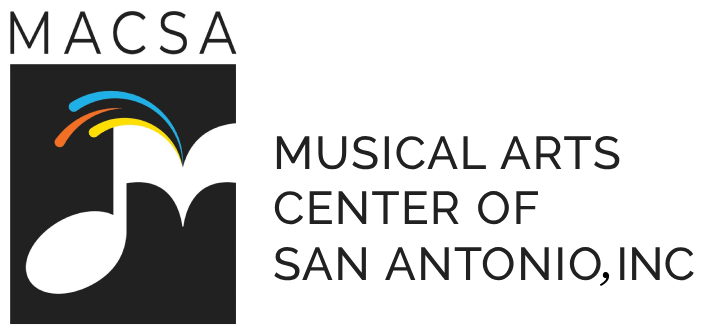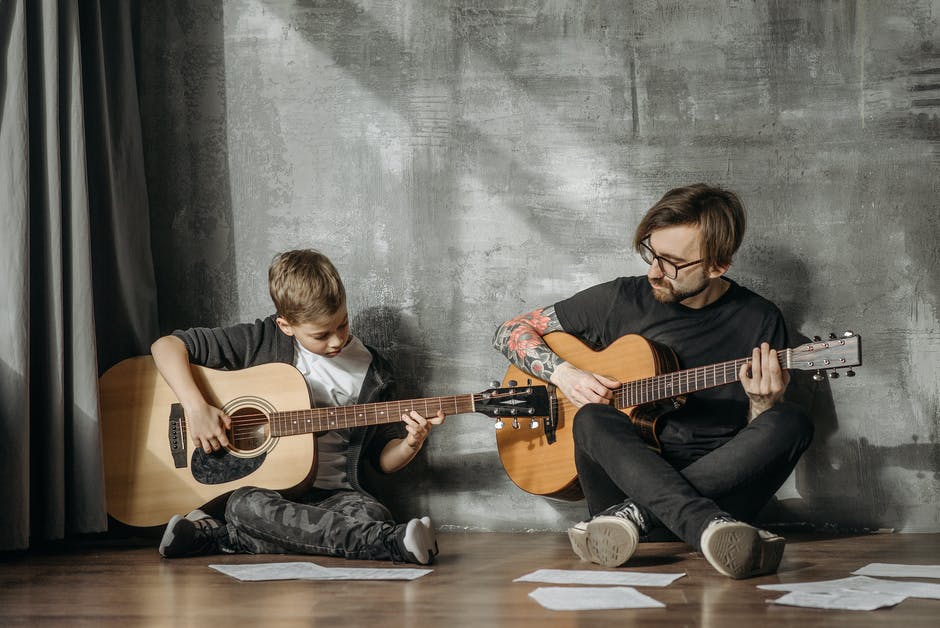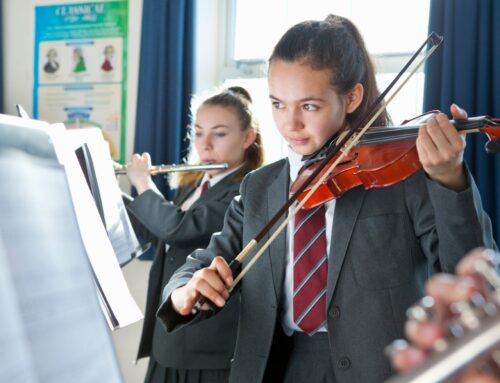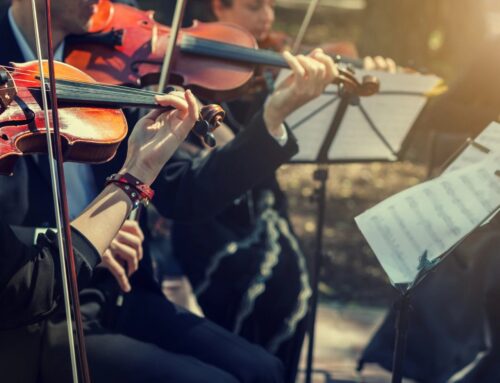It’s no secret that children take more music lessons than adults do. Childhood is looked at as a more exploratory time of life. The responsibilities of adult life lead many people to forget all about the joys of taking on a creative task.
However, a lot of children’s education these days focuses on turning children into productive cogs in a working machine. Many children’s books published these days seek to teach them about certain historical and social incidents better understood by adults, rather than fostering who they are as individuals.
Not every kid has to take this route, however.
There are still plenty of parents out there who read classic children’s literature to their kids. There are also parents who let their kids engage in music. In fact, most parents perceive children who participate in music as smarter.
This article will walk you through some of the benefits of music lessons for kids.
1. You Teach Patience
As the old saying goes, practice makes perfect. You can let your children win at games, explore the world in their fantasy playtimes, and show them easy-to-read children’s books. However, there’s no shortcut to learning to play an instrument.
Playing an instrument will quickly teach your child that if they want to improve, they’re going to have to practice. This teaches them patience. They have to learn to wait in order to get what they want.
This process also subconsciously enforces the idea of delayed gratification. Rather than your child growing up only being able to see what’s in front of them, there’s a good chance that they’ll learn hard work can make things pay off in the future.
2. You Teach Connections
When a child learns music, they learn how to make intellectual connections — not just creative ones.
What few people who don’t play music realize is it’s not just a matter of inspiration. Music is a system, with theories, mathematics, and complex moment-to-moment decision-making.
Let’s take, for instance, learning piano.
The piano demonstrates the world of music very visually. “Naturals” are the white keys, and “accidentals” are black keys. Piano lessons almost always emphasize this and use it to teach music theory.
Students aren’t just learning to do a trick by learning that bach chorale. They’re learning to understand how one note plays off another in a melody, how clusters of tones turn into chords, how a rhythm or shift in tempo can largely shift how a phrase is perceived.
If your child is learning classical piano, they’re learning how to take a path that was written for them and imbue it with their own sense of personality. If they are learning jazz piano, they’re learning how to compose on the spot. These both make use of very complex brain functions.
3. You Teach Creativity
However, it’s not all technique and theory. At the end of the day, music lessons are a wonderful way to give your child the tools they need to succeed creatively. As any jazz musician knows, you can’t express yourself creatively until you’ve learned a certain amount of technique and theory.
The framework you give your children when you teach them music helps them interact with the world. If they eventually learn to play with other musicians, they’ll have to listen and respond. If they accompany a singer, they’ll have to learn the art of making someone else look good — which can help them in any of their careers.
Legendary pianist Herbie Hancock tells a story about playing a wrong chord when in Miles Davis’ band. He assumed he ruined the whole night, but Miles Davis stopped, improvised a few notes, and made the chord sound right.
This is one of the amazing teaching moments that can happen to your children when they’re learning one of the arts.
4. You’ll Inspire Confidence
When your child finally plays that passage that they’ve been working on right, takes on a new piece that they’ve been wanting to play, or nails what they’ve practiced for months at a recital, they’ll almost definitely receive the rush of confidence that comes from a job well done.
Most children don’t ever learn this type of confidence. If they do, it’s largely linked with school, which can seem out of their control. Children are rarely fans of mathematical equations as much as they are fans of songs.
Sports are often turned to as the only way that children can learn a sense of pride in themself. Indeed, sports are a great way for children to learn that their individual accomplishments can matter.
However, many people miss out on the great benefits that music can have. Playing in a band instills a similar sense of community to playing on a sports team. Playing wonderfully is always great for children, whether they’re playing music or playing sports.
5. They’ll Have Fun
At the end of the day, music sparks joy.
The amazing part of music is that functionally, it has no use in our life. Sure, we can like the message of the lyrics to a song, but at the end of the day, it’s there to help us enjoy life more fully. Music inspires personal revelations within us, or simply acts as an encounter with the beautiful.
There’s no better gift you can give to your child than the gift of learning how to play music. Learning to play music is learning music appreciation, as well as learning how to bring that appreciation to the others and hearts of others.
Music Lessons Are Important
As the 21st century rolls on, kids are growing up too fast. They’re getting online and acting like adults, and their parents are encouraging them to live lives that will turn them into cogs in a machine.
The best antidote to this is music lessons.
Music has many functional benefits: it teaches children patience and the benefits of practice and teaches them how to make intellectual connections. It also helps children grow as people, teaching them creativity and confidence. At the end of the day, you can top that all off with the fact that children also have a lot of fun when they learn music.
For more information, contact us today.






